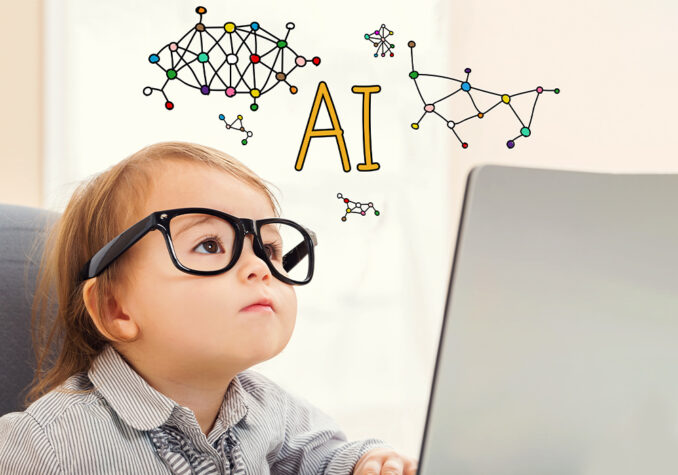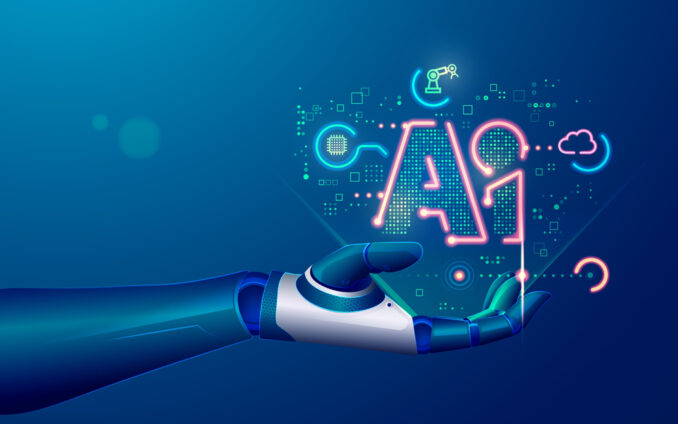In today’s digital age, artificial intelligence (AI) plays an increasingly prevalent role in our daily lives, from virtual assistants to recommendation algorithms.
“I think AI is going to unlock a huge amount of positive things, whether that’s helping to identify and cure diseases, to help cars drive more safely, to help keep our communities safe,” Mark Zuckerberg.
While AI offers numerous benefits, it’s essential for parents to ensure that their children use it responsibly and ethically.
Teaching kids about responsible AI usage and the technology behind it not only helps them navigate the digital world safely but also fosters critical thinking and empathy. Here’s a simple guide for parents to promote responsible AI usage in children.
Educate Them About AI

Source: robogenius.com
The first step in promoting responsible AI usage is to educate children about what AI is and how it works. Explain that AI systems learn from data and make decisions based on patterns and algorithms. Use age-appropriate language and examples to help them understand complex concepts such as machine learning and neural networks.
You should encourage questions and open discussions to demystify AI and empower children to make informed choices. For a more formal AI education there are coding camps for kids where kids can dive deeper to train their own AI models with fun and engaging projects.
Emphasize Privacy and Security
Teach children about the importance of protecting their privacy and personal information when interacting with AI-powered devices and services. Emphasize the need to use strong passwords, enable privacy settings, and avoid sharing sensitive information online.
Ask kids to think critically about the data they share and the potential consequences of their actions. Remind them that AI systems rely on data to function and that responsible usage involves respecting privacy rights.
Promote Critical Thinking Skills

Source: insight.openexo.com
Empower children to approach AI with a critical mindset by encouraging them to question the information and recommendations they receive. Teach them to evaluate sources, consider biases, and verify information before accepting it as true.
Kids should think analytically about how AI systems work and the potential impact of their decisions on themselves and others. By promoting critical thinking skills, parents can help children navigate the complexities of the digital world responsibly.
Foster Empathy and Ethical Awareness
Encourage children to consider the ethical implications of AI technologies and their societal impact. Discuss real-world examples of AI bias, discrimination, and misuse, and explore the ethical dilemmas they present.
Encourage empathy by discussing how AI systems affect different groups of people, including marginalized communities. Teach children to use AI in ways that promote fairness, inclusivity, and social responsibility.
Set Boundaries and Monitor Usage
Establish clear rules and boundaries around AI usage, including screen time limits, appropriate content, and parental controls. Monitor your child’s online activities and intervene if you notice any concerning behavior or misuse of AI technologies.
Use parental control features to restrict access to inappropriate content and monitor their interactions with AI-powered devices and platforms. Be proactive in addressing any issues or concerns that arise and use them as teachable moments to reinforce responsible behavior.
Lead by Example
As a parent, model responsible AI usage in your own behavior and interactions with technology. Show your children how to use AI tools and services ethically and respectfully. Demonstrate critical thinking skills by questioning information and considering its validity before accepting it. Be transparent about your own digital habits and decision-making processes, and involve your children in discussions about responsible technology use within the family.
Conclusion

Source: jetlearn.com
In an increasingly AI-driven world, teaching children about responsible AI usage is essential for their digital literacy and ethical development. By educating them about AI, emphasizing privacy and security, promoting critical thinking skills, fostering empathy and ethical awareness, setting boundaries, monitoring usage, and leading by example, parents can empower their children to navigate the digital landscape responsibly.
By instilling these values early on, parents can help shape a generation of informed, conscientious digital citizens who use AI technologies for the greater good.





